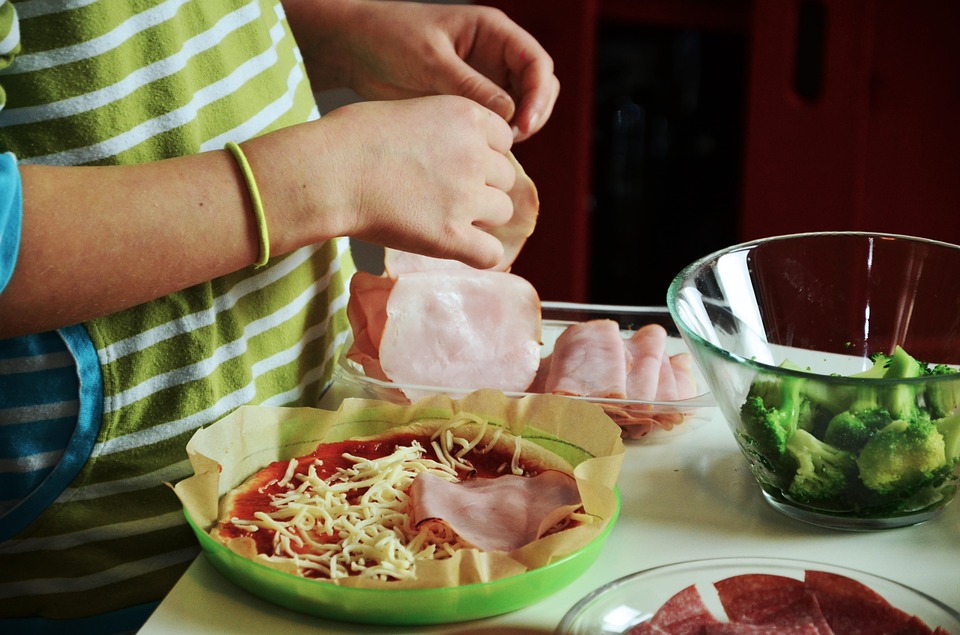Every soon-to-be parent approaches the birth of a child wishing for a healthy baby, but sometimes wondering “what if something goes wrong?” Most newborns do arrive in good health, but about one percent of babies are born with congenital heart defects (CHD), which are the most common type of birth defects.
There are close to 40 different CHDs, which are structural abnormalities of the heart’s walls, valves and arteries that are present at birth. Nearly all are treatable through a combination of surgery, cardiac catheterization, use of a pacemaker or other device, and medication. Some defects go unnoticed for years or decades, while others are more serious, potentially life-threatening conditions requiring surgery just a few days after a baby’s birth.
Does My Child Have a Congenital Heart Defect?

Congenital heart defects are detected at different points in time through a variety of methods:
1. Prenatal detection during pregnancy
Some types of heart defects can be detected during pregnancy. Prenatal ultrasound imaging is routinely performed around halfway through a woman’s pregnancy, giving the doctor a very clear picture of the heart and the ability to spot serious defects.
2. Signs and symptoms at birth
The more serious the defect, the more likely it will produce symptoms that are noticed as soon as the baby is delivered. Symptoms range from breathing difficulties, abnormal heart rate, blue skin tone, and the presence of heart murmur which the pediatrician may hear through a stethoscope while conducting a thorough physical examination in the baby’s first moments.
3. Oxygen saturation screening after 24 hours
Pulse oximetry screening is administered after 24 hours following the baby’s birth to measure the baby’s pulse and level of oxygen in the blood. A normal test result indicates with near-certainty that the baby does not have a serious congenital heart defect. The screening is highly effective for identifying the most serious defects that would be undetectable using ultrasound, and in earlier years would not have been detected before the newborn left the hospital.
4. Continuous monitoring once the baby goes home
While the likelihood of bringing home a newborn with an undetected CHD is quite low, parents should be aware of these potential signs and symptoms.
Feeding & Growth Issues

Congenital heart defects that go undetected after the baby’s birth can sometime become apparent through feeding problems or less-than-normal growth.
- Trouble gaining weight: Certain types of CHDs force the heart to work much harder or beat much faster to pump enough blood through the baby’s circulatory system. As a result, the baby will need to consume a much higher volume of food but may be too exhausted to eat, may sweat constantly due to the heavy exertion, and have trouble gaining weight. A visit to your doctor should reveal the problem, either by detecting an abnormal heart murmur or through an ultrasound examination.
- Problems during feeding: Some CHDs affect the structures near and around the heart, including the trachea and esophagus, that affect the baby’s ability to eat. It is normal for a baby to cough while eating or spit up food from time to time. But if it happens during most feedings, talk to your pediatrician. The problem could be a sign of a food allergy, a reflux condition, or a digestive disorder, but an ultrasound examination may reveal the presence of a CHD.
Difficulty Breathing
Undiagnosed heart defects can affect a child’s normal breathing.
- Acute distress: Since the advent of pulse oximetry screening, most serious heart defects are spotted by the time a newborn baby goes home for the first time. A small percentage of serious heart defects are revealed after a baby encounters breathing trouble requiring an urgent trip to the emergency room. While infections are the most likely cause of this kind of breathing episode, in some cases the symptoms indicate a CHD.
- Frequent problems: An undetected CHD can cause a baby to encounter frequent breathing difficulties. This tends to occur with increased physical activity, such as during feeding or while crying. Some babies experience episodes of rapid heartbeat and fast, shallow breathing. Consult your pediatrician as soon as you notice any type of irregular breathing.
- Blue skin tone: A blue-colored skin tone, known as cyanosis, is one of the most noticeable signs of a possible heart condition. The blue color is caused by insufficient levels of oxygen in the blood. The color may affect the baby’s full body, or the blue may be visible only in certain areas, such as on the lips and fingertips. Contact your doctor at the first sign of any blue tone.
- Other physical symptoms:In some cases, CHDs will produce symptoms of: sweating, especially coming from the baby’s head; excessive fatigue and lack of energy that causes a baby to sleep most of the day; dehydration which is marked by a dry mouth and unusually dark urine; and a sudden, unexplained weight gain or swelling in the baby’s hands, feet, and around the eyes, which signifies fluid retention caused by poor circulation.
Book a Check-up
A baby’s first year includes frequent visits to the doctor for periodic physical check-ups, immunizations, and screenings. If your baby has an undiagnosed congenital heart defect and has no noticeable physical symptoms, discovering the defect is most likely to result from your doctor noticing a heart murmur while listening to the baby’s heartbeat through a stethoscope. Some heart murmurs are harmless and can be left alone, while other murmurs signal the possible presence of a more serious heart condition, which could be confirmed by a follow-up ultrasound procedure.
Specialized knowledge and all-inclusive service
Bumrungrad International Hospital in Bangkok is home to more than 50 specialty centers and clinics, providing expert care across nearly every medical specialty and one-stop, all- inclusive service.
The Women’s Center at Bumrungrad is staffed by over 40 physicians, including specialists with expertise in pregnancy, prenatal and fertility health. The center features state-of-the-art diagnostic and treatment technology and equipment in spacious, comfortable surroundings. For more information or to arrange an appointment, contact the Women’s Center by calling +66 (0) 2011 2361, request an appointment online, or send us your inquiry.
Bumrungrad’s Children’s Center offers quality care by pediatricians and pediatric specialists serving children from newborns to teenagers. The center provides physical check-ups, screenings and vaccinations, and comprehensive treatments for specific pediatric symptoms. And the Special Needs Children Development Center supports the age-appropriate development and learning to fulfill each child’s full potential. Call the Children’s Center at +66 (0) 2011 3791, make an appointment online, or send an inquiry.
Editor’s Note: This article has been reprinted here with permission of Bumrungrad International Hospital.













